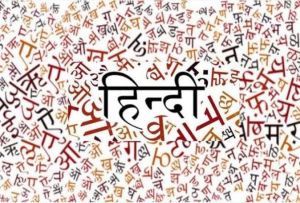Difference between revisions of "Language/Hindi/Grammar/Imperative-Mood"
Jump to navigation
Jump to search
m (Quick edit) |
|||
| (2 intermediate revisions by 2 users not shown) | |||
| Line 1: | Line 1: | ||
[[File:Hindi-Language-PolyglotClub.jpg|thumb]] | [[File:Hindi-Language-PolyglotClub.jpg|thumb]] | ||
<div | <div class="pg_page_title"> Imperative Mood in Hindi</div> | ||
Whereas there is only one imperative in English, there are '''5 different imperatives''' in Hindi. | Whereas there is only one imperative in English, there are '''5 different imperatives''' in Hindi. | ||
| Line 10: | Line 10: | ||
# '''Suni(y)e''' is the polite word of choice; one could translate it as “please listen”. | # '''Suni(y)e''' is the polite word of choice; one could translate it as “please listen”. | ||
# '''Suni(y)egā''' is extra-polite (“Would you kindly listen?”) and rarely heard in everyday encounters. | # '''Suni(y)egā''' is extra-polite (“Would you kindly listen?”) and rarely heard in everyday encounters. | ||
<span link>Don't hesitate to look into these other pages after completing this lesson:</span> [[Language/Hindi/Grammar/Conditional-Mood|Conditional Mood]], [[Language/Hindi/Grammar/Adjectives-and-Adverbs|Adjectives and Adverbs]], [[Language/Hindi/Grammar/Plurals|Plurals]] & [[Language/Hindi/Grammar/Nouns-and-Pronouns|Nouns and Pronouns]]. | |||
==Other Lessons== | |||
* [[Language/Hindi/Grammar/Be-Polite|Be Polite]] | |||
* [[Language/Hindi/Grammar/Past-Tense|Past Tense]] | |||
* [[Language/Hindi/Grammar/Pronouns|Pronouns]] | |||
* [[Language/Hindi/Grammar/Plurals|Plurals]] | |||
* [[Language/Hindi/Grammar/How-to-Use-Have|How to Use Have]] | |||
* [[Language/Hindi/Grammar/Future-Tense|Future Tense]] | |||
* [[Language/Hindi/Grammar/Present-Tense|Present Tense]] | |||
* [[Language/Hindi/Grammar/Questions|Questions]] | |||
* [[Language/Hindi/Grammar/Feminine|Feminine]] | |||
* [[Language/Hindi/Grammar/Adjectives|Adjectives]] | |||
* [[Language/Hindi/Grammar/Conditional-Mood|Conditional Mood]] | |||
* [[Language/Hindi/Grammar/How-to-Use-Have|How to Use Have]] | |||
* [[Language/Hindi/Grammar/Gender|Gender]] | |||
* [[Language/Hindi/Grammar/Negation|Negation]] | |||
<span links></span> | |||
Latest revision as of 13:52, 27 March 2023
Imperative Mood in Hindi
Whereas there is only one imperative in English, there are 5 different imperatives in Hindi.
Each form convey different levels of politeness:
- Sunnā is simply the infinitive of the verb “to listen” and it can also be used as a somewhat crude imperative.
- Similarly, sun —the root of the infinitive—carries a rough undertone. Both can be used among good friends or close relatives.
- Suno is slightly more polite and can be used among acquaintances or in casual everyday speech; but don’t use it in front of persons of authority or high standing.
- Suni(y)e is the polite word of choice; one could translate it as “please listen”.
- Suni(y)egā is extra-polite (“Would you kindly listen?”) and rarely heard in everyday encounters.
Don't hesitate to look into these other pages after completing this lesson: Conditional Mood, Adjectives and Adverbs, Plurals & Nouns and Pronouns.
Other Lessons[edit | edit source]
- Be Polite
- Past Tense
- Pronouns
- Plurals
- How to Use Have
- Future Tense
- Present Tense
- Questions
- Feminine
- Adjectives
- Conditional Mood
- How to Use Have
- Gender
- Negation
